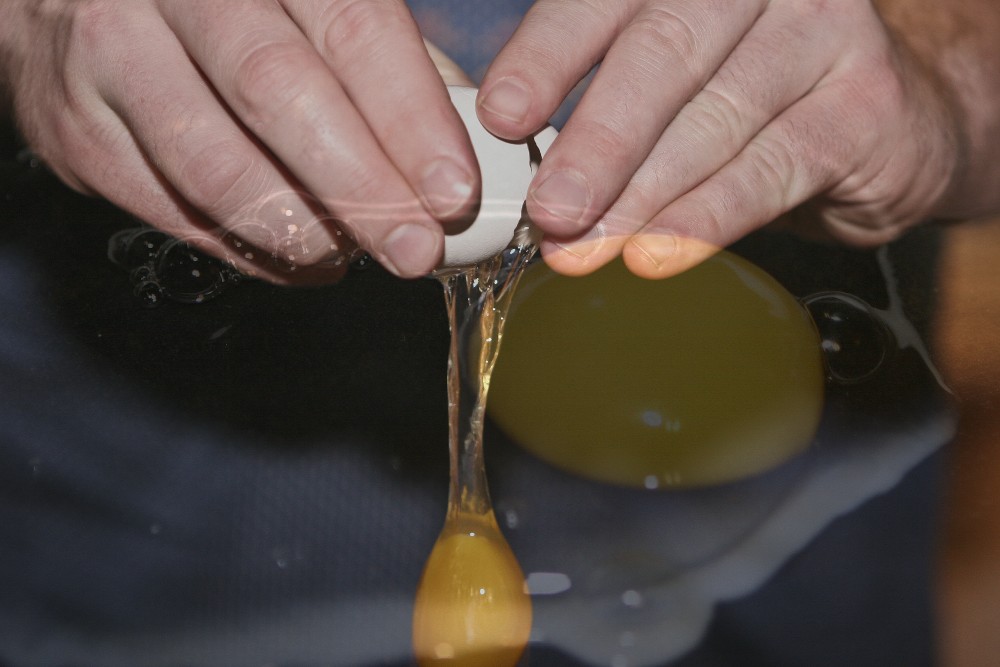Campus Dining first in state to use only cage-free eggs

GVSU’s Campus Dining is the first in the state of Michigan to use cage-free eggs.
Apr 15, 2010
At 7:30 a.m. Monday, Grand Valley State University’s Fresh Food Company cracked open its very first cage-free egg. By the fall 2010 semester, GVSU will be the first university in Michigan to use only cage-free eggs in its on-campus dining facilities.
The Humane Society of GVSU had lobbied Campus Dining to make the switch to cage-free eggs since September 2009 and launched a campus-wide petition in February of this year.
Free-range and other cage-free barn systems vary widely in design and state-by-state requirements but generally allow birds to move about more freely than with traditional battery caging systems. Free-range hens live outdoors or have outdoor access, while barn system hens are provided with nest boxes and litter or sand for foraging, dustbathing and scratching.
Marketing manager for Campus Dining Deb Rambadt said dining recently committed to using cage-free eggs following a HSGVSU presentation at a March 30 management meeting.
“The Campus Dining management team looked into local, sustainable resources, cost differences and social concerns,” Rambadt said. “…The group openly discussed the opportunity. The decision to switch to cage-free eggs was made at that time.”
Rambadt added Fresh Food Company has already begun using cage-free eggs, while the remaining dining centers will follow shortly.
“Campus Dining is planning a full implementation of cage-free eggs beginning fall 2010 to coincide with the opening of the new academic year,” she said.
Rambadt added Campus Dining will continue using its current egg supplier, Aramark, to purchase the cage-free eggs, which cost approximately three times the price of the regular eggs the university currently purchases.
HSGVSU President Lena Spadacene said the prospect of being the first completely cage-free university in Michigan was a key motivator in dining’s decision.
“Some universities had been considering it but hadn’t gone 100 percent cage-free yet,” she said. “So that seemed to be a huge incentive was for Grand Valley to be the first one.”
Spadacene said the next step for HSGVSU and dining will be obtaining the eggs in the most environmentally friendly way possible.
“We’re also looking to get cage-free eggs within 150 food miles, so we’re really trying to double the sustainability aspect of it,” she said. “Not only would we be able to get cage-free eggs that would be from a more sustainable method of farming, but we’d also be able to cut down on gas when it comes to the price and we’d also be able to cut down on the pollution that it takes to ship the product to our university … No matter what sector of an institution, there’s always ways to be more sustainable and more humane.”
Spadacene said she believes the move to cage-free eggs has been a huge step forward for GVSU and a “big win” from the humanity aspect as well as the sustainability aspect.
“So we’re going to take some time to really congratulate Grand Valley on this decision and support them in this transition,” Spadacene said. “Then we look forward to working with them in the future on exploring any other options out there.”






















